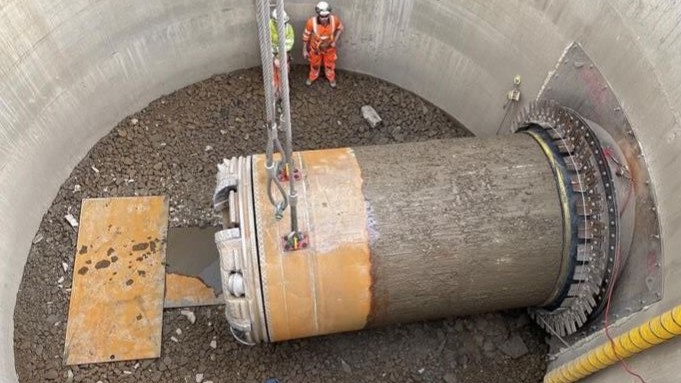With a summer that was nothing short of wet, it’s hard to believe that the Southeast of England is only ever a couple of dry winters away from drought. Affinity Water, the largest UK water-only supplier, has partnered with Demos on new research to understand perception of the current water crisis, the risks we, as a nation, face as well as the collective action needed to address and prevent water shortages.
Increasing evidence points to demand for water far exceeding supply. In the long-term, 4.9 million extra people will live in the Southeast. This is why the Southeast could account for around 50% of the UK’s future water demand. Estimates show we could need an extra 1 billion litres of water per day over the next 15 years. Now, the research by Demos looks to uncover the current understanding of the water crisis as well as the onus on finding a solve.
In 2021, the government set an aim of reducing personal water use by 110 litres per person, per day by 2050. Simple solutions, like fixing a leaky loo can save 400 litres of water per day, while shortening a shower by two minutes can save up to 30 litres. This is why gaining a view on public attitudes towards water resilience is critical.
Awareness is the catalyst for action
Despite the rainfall seen this summer, there is still public concern towards the impact climate change has on our water supply with one in three people being concerned that climate change will lead to an increase in droughts and water shortages in the next 5 years. Londoners and those in the South of England are most concerned about water shortages, whilst Northern and coastal zones are noticing the impact of more severe weather events, notably storms. But surprisingly, along with the rest of the UK, believe that their water usage has little impact on the environment.
The issue starts at home
With the increase in daily water use and demand set to outstrip supply, there’s a fresh reality that, without intervention and a change in consumption habits, then UK taps could dry up. However, only 28% of people believe it is the responsibility of individual households to take action to reverse water scarcity in the UK. This extends to businesses too, with almost one in three (32%) of people saying that businesses should have a responsibility to improve the water efficiency of their staff and help them to conserve water if they work from home, this increases to 44% of young people (aged 18-34).
Evolving the Water conversation
The water industry is facing significant challenges to ease the demand for water reduction targets – and whilst the water companies are working hard to ensure water reaches people’s homes – 66% of people feel the UK government has as much of a role to play for maintaining water access, as water companies. The need for collective action also extends beyond the water industry. While just 8% of people believe household appliance manufacturers have a responsibility to take action for water scarcity in the UK, the Department for Environment, Food and Rural Affairs estimated that some 1,200 million litres of water per day could be saved by introducing mandatory efficiency labelling on washing machines, dishwashers, showers and taps.
Keith Haslett, CEO, Affinity Water, comments:
“Climate change is making periods of extreme weather, such as drought, more frequent and intense, at the same time, demand for water is increasing amid an increasing population in the UK.
“This research helps underline the importance of safeguarding the future resilience of our water supply in the face of climate change and population growth. It is one of the greatest challenges we face in the near future.
“We are making significant investment in identifying new sources of supply, and supporting our customers reduce water wastage, but what is needed is a more joined-up approach from the water industry, Government, house builders, domestic appliance manufacturers and households. To find a long-term solution to the water shortage in the UK, it will take openness about the reality of the future supply, introduction of innovative solutions, and new national policies and drive from the Government to engage the public and business in behaviour change.”
Andrew O’Brien, Director of Policy and Impact, Demos said:
“The public is increasingly aware of the risks that are facing our country in keeping the taps flowing, but there seems to be a disconnect between the level of importance placed on this by the public and the steps that the UK is taking to deal with the risks. We are rapidly running out of time to increase our water resilience. We need policy makers, the water industry, business and the public to work together to develop a comprehensive approach to tackling this issue and avoiding an unnecessary water crisis in the years ahead.”



